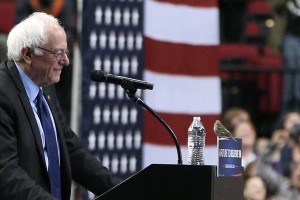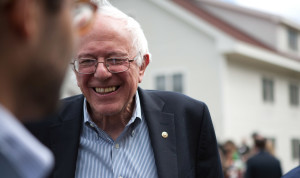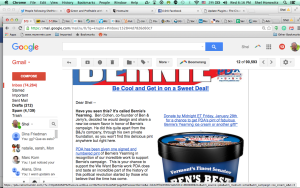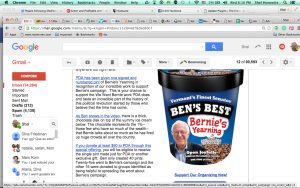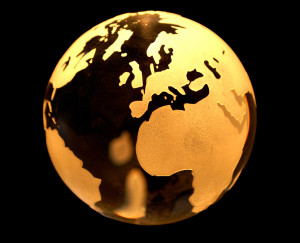Branding and the US Presidential Race
The 21016 US presidential race shows that branding repels as well as attracts.
Three of the five remaining candidates have very strong brands. Trump has the strongest, clearest brand: “it’s all about me; the issues don’t matter.” I found him repugnant 11 years ago when he keynoted a conference where I was speaking, and find him even more so today. What part of his brand that is not based in Donaldism is rooted in misogyny and racism. His cult of personality is far too reminiscent of dictators in other countries, other centuries. His cluelessness on the issues, tolerance of violence at his rallies and in his campaign leadership, and his blatant disregard for truth create a strong brand indeed—but it’s strong like the odor of raw sewage, a push-away. This is not who I want governing the country!
Next strongest is Sanders, who is all about integrity, consistency, and giving a leg up to those who’ve been squeezed out by the 1%. And who got my vote in the primary. While just as much an outsider, Sanders is the opposite of Trump. I think ultimately Sanders’ “we” will trump Trump’s “me.” Win or lose, he is out there to build a movement, and is universally respected for it.
Interestingly, both of these two have built brands on their outsider-ness. Not a good year for the mainstream candidates, even those who are the son/brother—or wife—of former presidents.
The third brand-builder is Clinton. She is very much a mainstream candidate and has built her brand around “isn’t it time for a smart, powerful woman to be in power?” Like Trump, she’s a “me” candidate, but with more appeal to constituencies that vote. Unfortunately for her, it’s been wrapped up in a package of entitlement, incompetence, lack of transparency, and settling for crumbs.
That Sanders has even been a contender, let alone actually won so many contests and nearly tied several others, shows some of the flaws in Clinton’s strategy. Without resorting to attack ads, he has successfully pointed out that she is a Janey-come-lately on issues ranging from LGBT rights to the TPP trade agreement, where he has been forthright and consistent for decades. He is the first serious contender in decades to raise a viable campaign budget from a broad base of millions of supporters. Meanwhile, she tells the American people to be satisfied with what they have, while he talks about redistributing wealth from the 1%.
There is certainly some part of the Clinton brand that is wildly successful. She is perceived as greater a friend to people of color, while even though Bernie grew up in ultra-diverse New York City and marched with Martin Luther King while she was working for Barry Goldwater, he is perceived as trapped in whiteness. And she has successfully outflanked him from the left on one issue: guns. But the perception is that she doesn’t see the big picture, doesn’t understand the shift in the culture, will be at least as obstructed by the other side as Obama, and expects people to vote for her just because she’s been waiting so long.
Of course, two other candidates still remain on the Republican side: Cruz and Kasich. Neither has really built a brand. What Cruz stands for—a hard-right agenda fueled by religious conservatism (and, seemingly, some personal unlikability)—is not widely known around the country. If he becomes the nominee, the Democrats will build his brand for him, warning of the apocalypse to come (as they’re already doing regarding Trump).
As a relatively personable moderate with a reasonable track record, Kasich would actually be the Republicans’ best hope if he had any marketing traction. Of the three remaining, he’s the only one who could get independents and centrist Democrats aboard. Fortunately for the Democrats, he doesn’t. The GOP clearly wants an extremist this year, and Kasich has won only his own state of Ohio.

